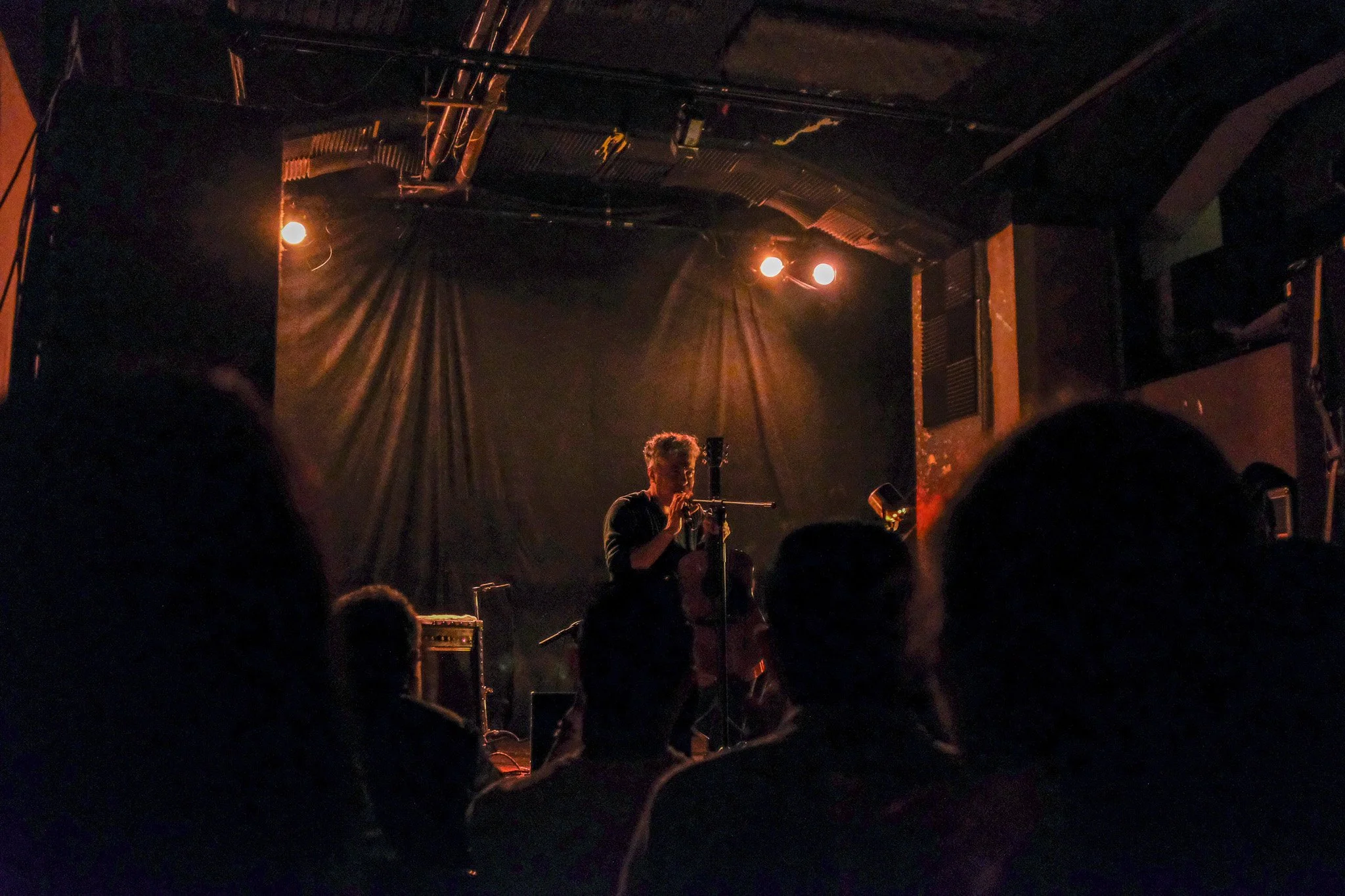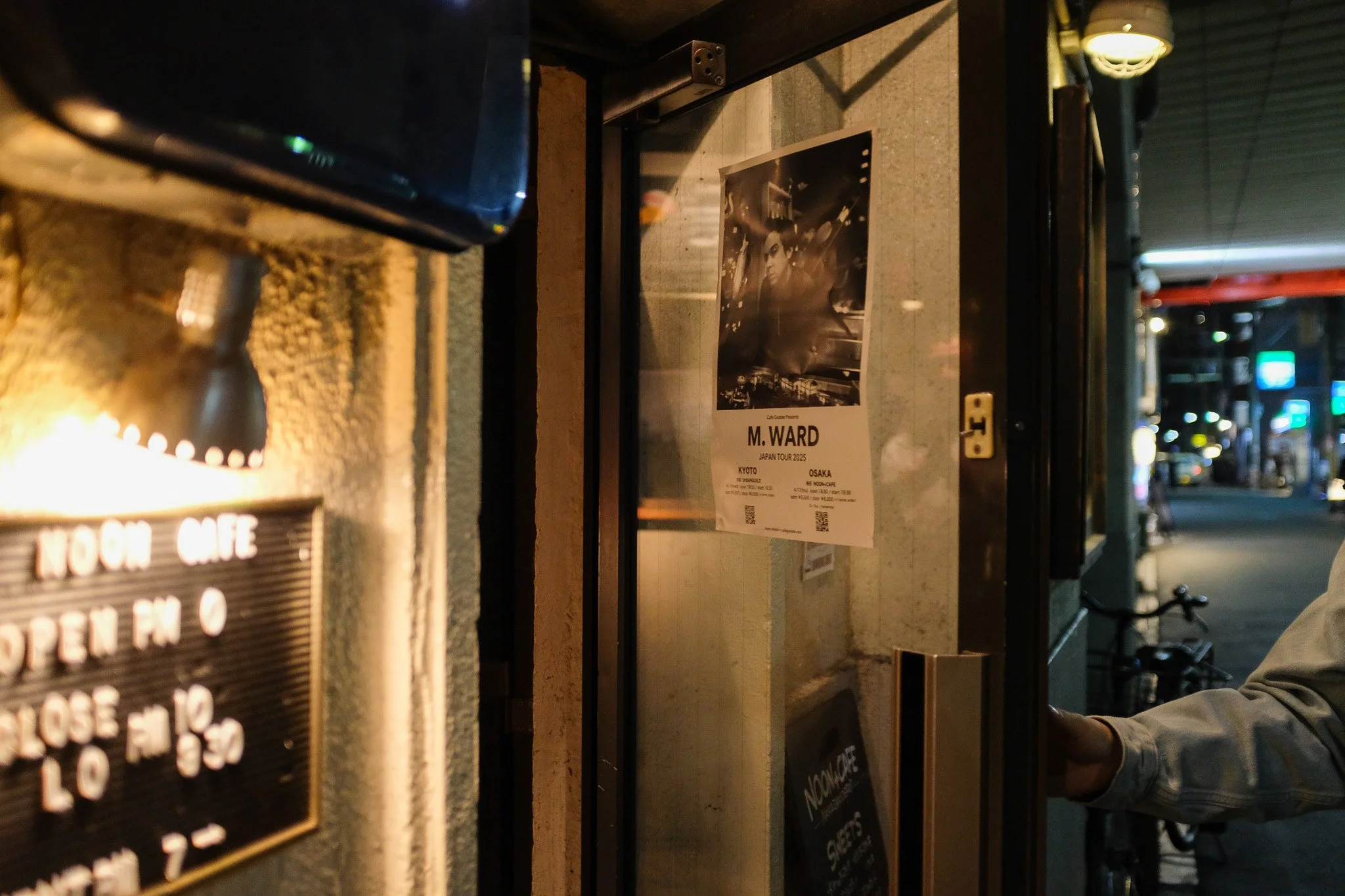He Only Sings When He’s Sad
It must have been around the time my journalism instructor in undergrad was giving a brief lecture on the importance of not beginning your news article with “it” that I first came across M. Ward’s music. All 2:38 of “Vincent O’ Brien” grabbed my entire conscience and I was immediately drawn into the warmth of not only Ward’s voice, but the entirety of his production, a sound not unlike many others, but one all his own. A challenging task for any artist: Draw from your influences while spinning your own spin.
Since that first introduction to M. Ward’s catalogue in the early 2000s, I have continued to enjoy his music. I was lucky enough to see him open for Bright Eyes on their Lifted tour in 2002. In 2004, I saw him perform with Conor Oberst and Jim James on their “Monsters of Folk” tour (the three later formed Monsters of Folk and released a pretty great record in 2009). Other memories of M. Ward’s music includes hearing one or two of his tracks from Post-War at my good friend’s wedding reception in 2007 and recently rediscovering his 2009 release Hold Time thanks to the abundant used CD market in Japan. In short, M. Ward has been a memorable part of my musical conscience for the better part of two decades.
When I found out he was touring Japan this spring in support of For Beginners: The Best of M. Ward, it was a no-brainer to secure tickets to his Noon+Cafe performance in Osaka. My wife Airi and I arrive at Noon+Cafe a bit early as we had a hunch we could snag a place to sit. Our prediction was correct and we found two seats stage-left/middle-back; roughly 10 metres from the cozily lit stage. Noon+Cafe is intimate, as perhaps the name suggests, and immediately upon entering it felt like the absolutely ideal place to see an artist such as M. Ward. It is dark with no frills, a faint smell of lingering tobacco from years gone by, and a small staircase stage-left, leading up to the green room where M. Ward awaited his entry to the 80 or so in attendance. Before M. Ward took the stage, a bottle of red wine with its cork patiently resting on top was placed on a table across from M. Ward’s patiently awaiting Martin. An announcement was made that taking video would be prohibited, but that it would be ok to take flash-free photographs. There would also only be one set and M. Ward would also be available to sign vinyl records and other items after the performance.
With all housekeeping items out of the way, we were left to wait just a few more minutes before M. Ward emerged from the attic, grabbed his guitar and eased us into his world with two guitar-only songs, one of them being “Duet for Guitars #3” from Transfiguration of Vincent. Now, here is where I must refer to the importance and absolute beauty of M. Ward’s sound. As soon as the guitar reverberated from the amp and began to fill the room, we were transported into the M. Ward sound that he has so masterfully executed throughout his catalog. Some may call it warm, others may call it analog gold, or sepia-toned-Americana-folk-blues; an inimitable ambience. It is quite difficult to put into words what exact tones M. Ward assembles from his guitar and amplifier and perhaps even unnecessary, but rare it is to hear an artist perform a selection of songs from their catalog in the way M. Ward did at the Noon+Cafe. He not only masterfully represented the sound of his recorded work in the live setting, but also recreated it in a way that gave the songs this entire new life; a life only for those lucky enough in attendance to hear. Ward treated us to nearly 90 minutes of these recreations, which included gratitude filled stage banter, two encores and a multitude of live looping his guitar to magnetically fill the room.
Was I disappointed he didn’t play the aforementioned song that led me to M. Ward fandom for all these years? Well, maybe a tad, but in the end I was won over just as much as hearing his music for the very first time.



